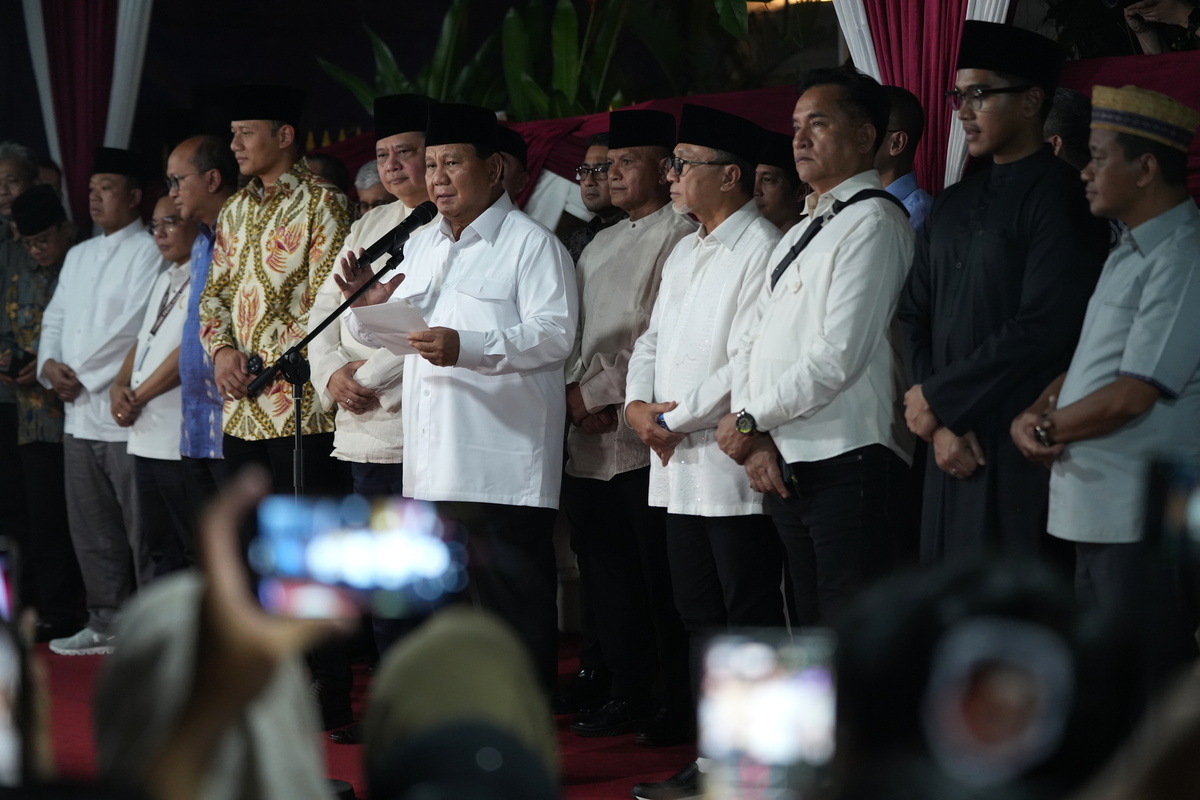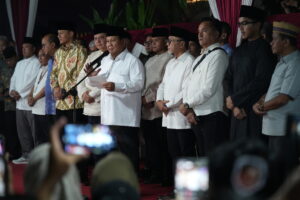

Welcome to the center stage of Indonesian politics where power plays and strategic maneuvers take place! In the midst of a heated tug of war over ministerial seats, Prabowo Subianto’s recent gathering has sparked intrigue and speculation. Let’s delve into the pulse-pounding drama unfolding in Indonesia as key players jostle for position and power in anticipation of 2024.
Background of the issue tug war over ministerial seats
The background of the issue surrounding the tug war over ministerial seats in Indonesia stems from the recent political developments following the 2024 elections. As different factions vie for power and influence within the new government, tensions have risen over who will secure key positions in Prabowo’s cabinet. This power struggle is not just about individual appointments; it represents larger ideological and strategic differences among those competing for control.
With Prabowo emerging as a central figure in this dynamic, his choices regarding ministerial appointments hold significant weight in shaping the direction of Indonesian politics moving forward. The allocation of these coveted positions has become a battleground where alliances are formed and broken, often leading to backroom deals and heated negotiations behind closed doors. As various stakeholders continue to jostle for their preferred candidates to be selected, the outcome of this ministerial tug war remains uncertain, with potential ramifications for policy-making and governance in Indonesia.
Key players involved in the issue
As the issue tug war over ministerial seats continues to unfold within Indonesian politics, key players have emerged on both sides of the controversy. At the center of this political drama is Prabowo Subianto, leader of the Gerindra Party and former presidential candidate. Known for his strong influence in Indonesian politics, Prabowo’s decisions regarding ministerial appointments hold significant weight.
On the opposing side are members of President Joko Widodo’s coalition who are vying for their share of ministerial positions in the upcoming government. With each party pushing for its interests, tensions run high as negotiations intensify behind closed doors. Additionally, other influential figures within Gerindra Party and political allies play crucial roles in shaping alliances and strategies during this power struggle. The dynamics between these key players will ultimately determine how this issue unfolds and impacts Indonesia’s political landscape moving forward.
Possible outcomes and implications of the issue
As the tug war over ministerial seats continues within Indonesian politics, the possible outcomes and implications of this issue are multifaceted. One potential outcome could be a reshuffling of power dynamics within the government, leading to shifts in policy direction and decision-making processes. This could impact various sectors of society, from economy to social welfare programs.
Moreover, the controversy surrounding Prabowo’s gathering amidst this issue might result in heightened public scrutiny and skepticism towards political maneuvers. The credibility and trustworthiness of key players involved may also come under intense scrutiny from both the public and other political stakeholders. The implications of how this issue unfolds could have far-reaching consequences for Indonesia’s political landscape moving forward towards 2024. It remains to be seen how these developments will shape alliances, strategies, and the overall trajectory of Indonesian politics in the coming years.
Public reaction and criticism towards the Prabowo gathering
The Prabowo gathering amidst the issue tug war over ministerial seats has sparked a range of reactions from the public. Many citizens have expressed their concerns about the transparency and fairness of the decision-making process regarding ministerial appointments. Some feel that political interests are overshadowing the needs of the people in this power struggle.
Criticism towards the gathering has been mounting, with accusations of backroom deals and horse-trading dominating discussions on social media platforms. Calls for accountability and integrity in politics have become louder as Indonesians demand a government that prioritizes their well-being over personal agendas. As tensions escalate, it is clear that public trust in political institutions is at stake. The outcome of this issue will undoubtedly shape the future landscape of Indonesian politic and influence voter perceptions leading up to the 2024 elections.
Analysis of Prabowo’s strategy in handling the issue
Prabowo handling of the issue tug war over ministerial seats has been strategic and calculated. By convening a gathering amidst the controversy, he aims to project unity and strength within his party. This move not only showcases his leadership but also sends a message of confidence to his supporters. By carefully navigating the negotiations for ministerial positions, Prabowo shows his adeptness in managing delicate political situations. His ability to balance competing interests while maintaining party cohesion is crucial in securing a stable government post-election.
Furthermore, Prabowo’s strategy involves leveraging alliances and building consensus among key players. Through dialogue and diplomacy, he seeks to resolve conflicts amicably and ensure a smooth transition into power. Prabowo’s approach reflects a shrewd understanding of Indonesian politics and highlights his commitment to leading effectively in challenging times.
Conclusion: What does this controversy mean for Indonesian politics?
The controversy surrounding the Prabowo gathering amidst the issue tug war over ministerial seats has shed light on the intricate dynamics of Indonesian politics. As key players maneuver to secure their positions and influence within the government, it is evident that power struggles and negotiations are at play behind closed doors. This saga underscores the importance of transparency, accountability, and integrity in political decision-making processes. The public scrutiny and criticism directed towards the Prabowo gathering highlight the expectations of citizens for ethical leadership and governance.
Moving forward, how this controversy unfolds will have lasting implications for Indonesian politics. It will shape public trust in political leaders, impact coalition dynamics, and potentially influence policy directions in the future. As Indonesians watch closely to see how this issue resolves, one thing remains clear – navigating through these challenges will require astute leadership, effective communication strategies, and a commitment to upholding democratic principles for a stronger and more resilient political landscape.






